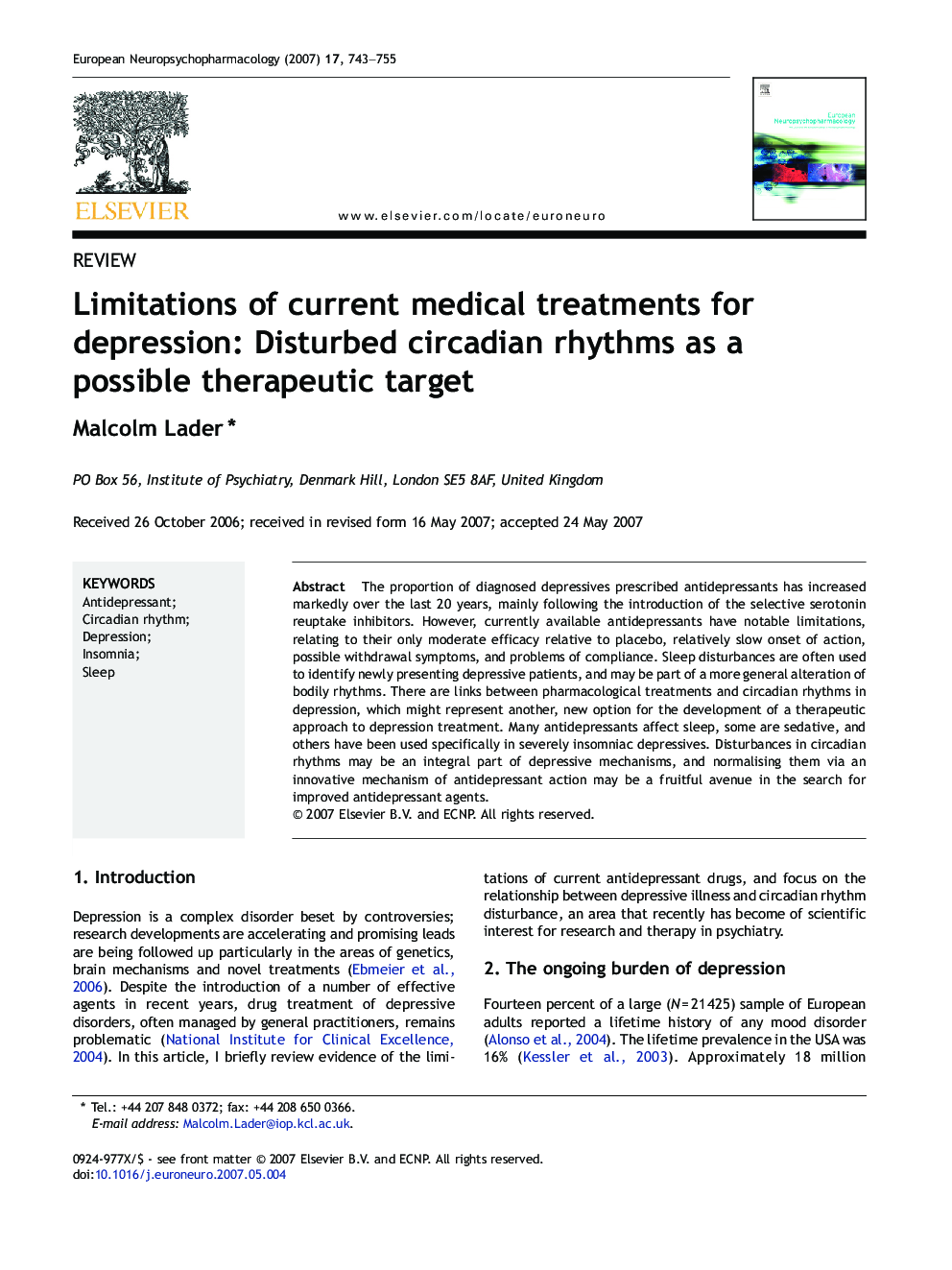| Article ID | Journal | Published Year | Pages | File Type |
|---|---|---|---|---|
| 321145 | European Neuropsychopharmacology | 2007 | 13 Pages |
The proportion of diagnosed depressives prescribed antidepressants has increased markedly over the last 20 years, mainly following the introduction of the selective serotonin reuptake inhibitors. However, currently available antidepressants have notable limitations, relating to their only moderate efficacy relative to placebo, relatively slow onset of action, possible withdrawal symptoms, and problems of compliance. Sleep disturbances are often used to identify newly presenting depressive patients, and may be part of a more general alteration of bodily rhythms. There are links between pharmacological treatments and circadian rhythms in depression, which might represent another, new option for the development of a therapeutic approach to depression treatment. Many antidepressants affect sleep, some are sedative, and others have been used specifically in severely insomniac depressives. Disturbances in circadian rhythms may be an integral part of depressive mechanisms, and normalising them via an innovative mechanism of antidepressant action may be a fruitful avenue in the search for improved antidepressant agents.
